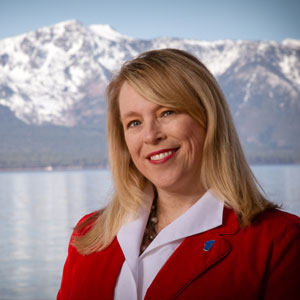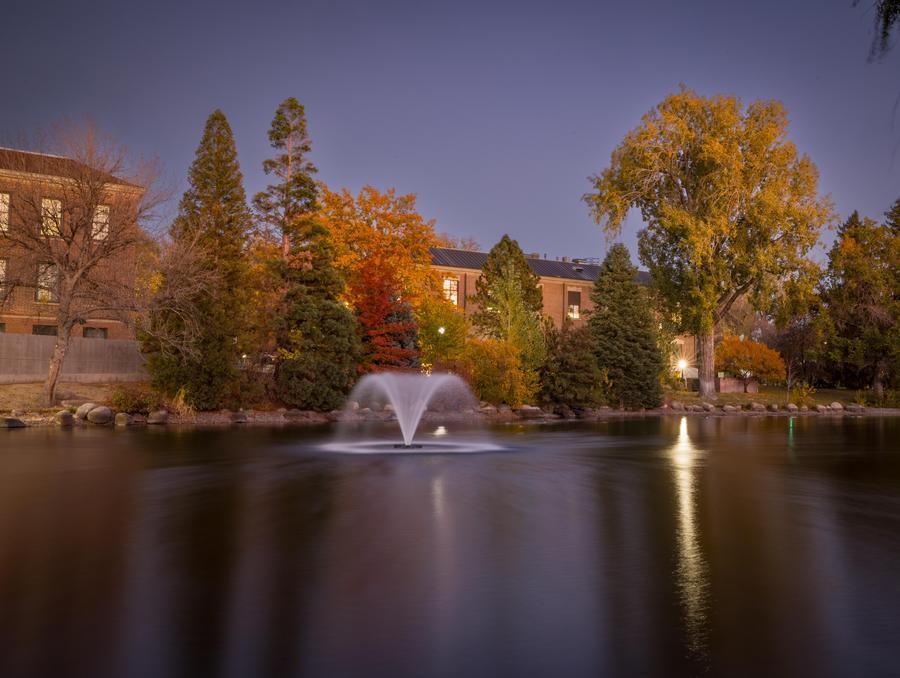Overtourism: Seeking Solutions for Tahoe at the World Tourism Day Forum
Can we all enjoy special places without loving them to death? UNR Ph.D. student Julie Regan looks at the emerging phenomenon of “overtourism” as a featured speaker on World Tourism Day at George Washington University in Washington D.C.
Barcelona, Venice, Amsterdam. In Europe and around the world, popular tourist destinations have reached a tipping point. A growing middle class, improved connectivity, and the desire of people everywhere to see the world means that popular destinations are becoming saturated with visitors. Overcrowding is disrupting daily life, degrading precious natural and historic sites, and impacting the traveler experience. This phenomenon, dubbed "overtourism," has led to civic protests and residents demanding that tourists go home.
I am a Ph.D. student in the Interdisciplinary Graduate Program in Environmental Science at UNR. I am participating in the national and regional destinations panel at the 2018 World Tourism Day Forum where I plan to address the tourism challenges at Lake Tahoe. While in school, I also work full-time as the Chief of External Affairs and Deputy Director of the Tahoe Regional Planning Agency. Lake Tahoe's tourist-based economy has seen record visitation over the last several years putting pressure on the area's local resources.
In response to the growing problem of overtourism, The Center for Responsible Travel (CREST) and The George Washington University's International Institute of Tourism Studies are co-hosting a 2018 World Tourism Day Forum focused on this increasingly important issue. The day-long event, planned for some 200 attendees, will be held at the Jack Morton Auditorium on The George Washington University campus.
The Forum will feature five moderated panel discussions on overtourism covering:
- Historic Cities
- National Parks & Protected Areas
- World Heritage Sites
- Coastal & Beach Communities
- National & Regional Destinations
My dissertation will focus on research questions in a case study of sustainable tourism at Lake Tahoe and in Cuba. My work probes at how science can help us avoid loving special places to death while at the same time recognizing the economic benefits of tourism. In areas like Lake Tahoe and Cuba, tourism is a path to prosperity.
At the World Forum Tourism event, presentations and panel discussions by industry experts and tourism professionals will feature both critical challenges and potential solutions to overtourism. Albert Arias Sans, the Head of the Strategic Plan for Tourism for the city of Barcelona, will deliver the keynote address.
This year's Forum builds on the highly successful 2017 World Tourism Day Forum co-hosted by CREST and UN Environment, which showcased the United Nation's International Year of Sustainable Tourism for Development.
For more information, contact the Center for Responsible Travel (CREST) at www.responsibletravel.org.





